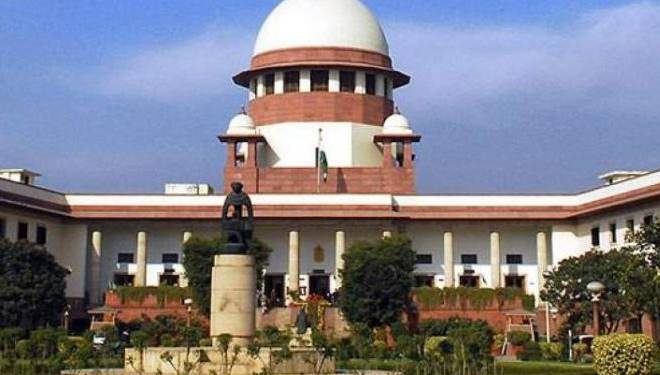New Delhi: The Supreme Court Friday decided to put on hold the elections for the local bodies in nine new districts, carved out of four existing ones, in Tamil Nadu for complying with legal formalities such as delimitation and reservation in four months.
A bench headed by Chief Justice of India (CJI) S A Bobde considered the suggestion put forward by the Tamil Nadu government that it was willing to put on hold the local body polls in the nine districts for complying with legal formalities such as a fresh delimitation exercise and for deciding the issue of reservation for women and SC/ST candidates.
The bench, also comprising justices B R Gavai and Surya Kant, said, “There shall be no legal impediment in holding the elections in the rest nine districts of Tamil Nadu.”
It directed the Tamil Nadu State Election Commission to conduct the delimitation exercise and other formalities afresh and conclude them in four months.
The nine reconstituted districts, where the polls will not be held, are Kancheepuram, Chengalpattu, Vellore, Thirupatthur, Ranipeti, Villupuram, Kallakuruchi, Tirunelveli and Tenkasi.
The bench also said the local body elections in the remaining districts of the southern state will be held as per the earlier schedule.
The state election commission had Monday announced that the local body polls in Tamil Nadu will be held in two phases — December 27 and 30 — without complying with the formalities.
The apex court bench had given the state government two options and asked it to either agree to keep the bifurcation of the districts in abeyance or not hold the local body polls for the nine new districts.
The counsel for the state government had subsequently informed the court that it was willing to put on hold the polls in the nine districts and the process will continue in the local bodies of the other districts.
The top court’s order came on a plea moved by the Dravida Munnetra Kazhagam (DMK), seeking a direction to the state authorities to “carry out delimitation, reservation and rotation process and fulfil all other legal requirements before issuing any election notifications and conducting elections” for the local bodies in the state.
The counsel for the state government had, on Thursday, referred to various court verdicts and said once the poll process, even an imperfect one, was set in motion, no court could or should delay or postpone it.
However, the court had said the law on delimitation needed to be followed after the bifurcation or trifurcation of four districts into nine, even if it involved postponement of elections.
“You delay the process by bifurcating the districts and then say proper follow-up procedure (delimitation) should not be followed. The law must be followed and if it involves the postponement of polls, so be it,” the bench had said.
There are three processes — commission delimitation of each ward of all the local bodies, reservation of the office of chairman or mayor in a town panchayat, municipality or corporation and the rotation policy, which are to be carried out by the state government and the Tamil Nadu Delimitation Commission, which is then to be implemented by the Tamil Nadu State Election Commission, the DMK had said in the plea.
The party had alleged that the Tamil Nadu government was dragging its feet on conducting the polls and had not carried out the delimitation activity for the nine new districts and claimed that in many districts, even the preliminary delimitation exercise was not conducted.
The plea said: “The basic legal requirement of publishing draft delimitation proposal/order has not been carried out and in the absence of such publication, neither any objections have been invited or received, nor any hearing has been conducted.
“The delimitation authority has also not carried out rotation and reservation of seats, exercise subsequent to publication of draft delimitation order. Hence, the state election commission has so far not carried out and completed basic legal formalities and therefore, cannot be permitted to hold local body polls in a manner which would not be fair and free and would also be contrary to the mandatory legal requirements.”
PTI






































